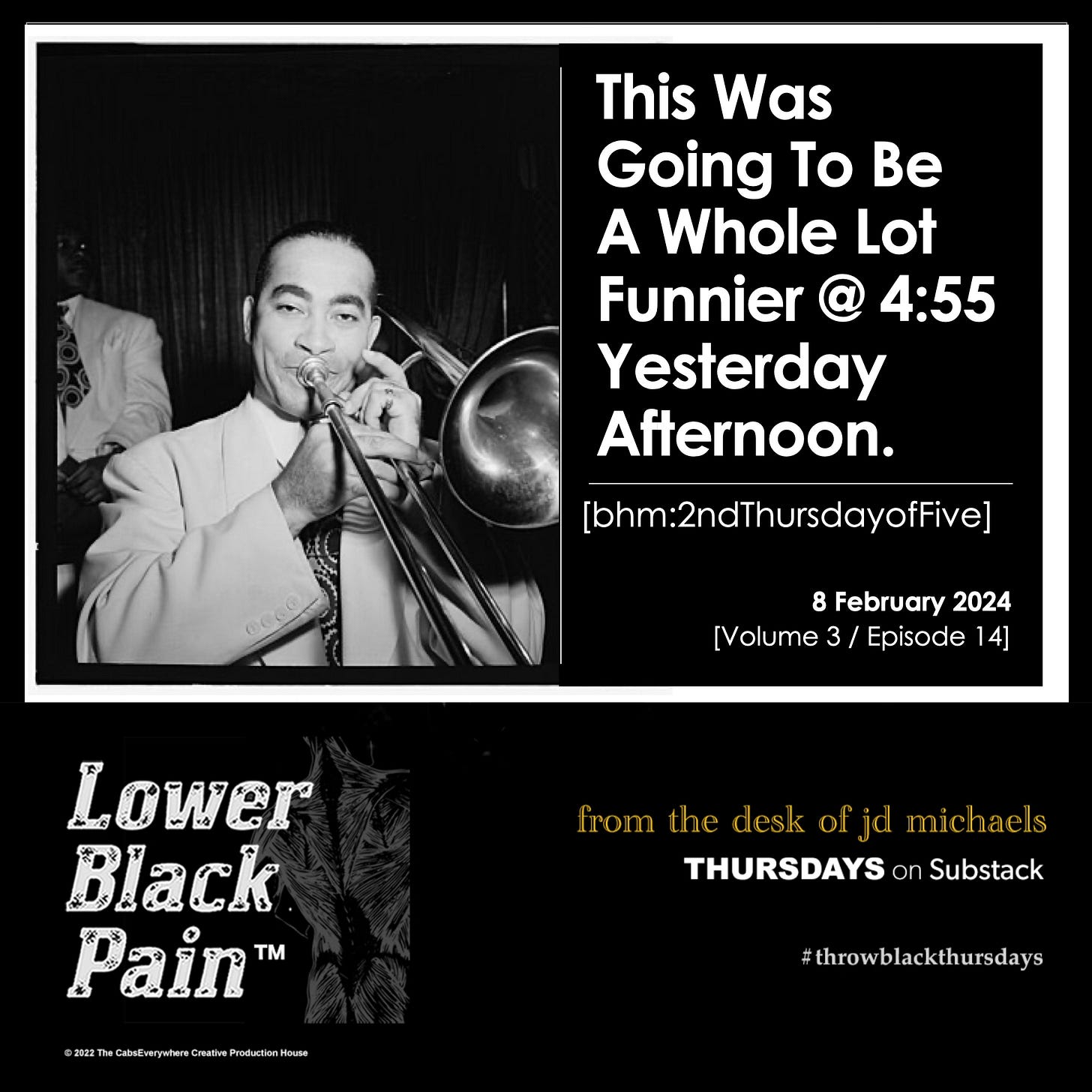Yesterday at 5 PM, my daughter called me at work on FaceTime, which is how I could see how visibly upset she was.
“They murdered him!” she said.
“What are you watching?” I asked.
“I’m not watching anything! I’m doing my homework!”
“What homework? Who’s dead?”
“The little boy…” and here she paused.
My daughter is not studying to be a detective, nor a coroner; she’s a seventh grader, and last I knew she was studying diseases. Her school has education units where a single subject is the focus of all her classes. They were currently focused on diseases; as she learned about both the yellow and dengue fevers she discovered how they began (reading class), how quickly they spread (math class) and the methods used to eradicate them (science class). I don’t believe it includes art. I’m not sure how that would work out.
But it’s Black History Month.
“They murdered him because they were racists.”
I quickly opened my laptop and connected to my daughter’s online classwork. The reading assignment was the story of Emmet Till, spelled out in detail, with directions on how to compare and contrast and recognize cause and effect, and list of new vocabulary words including mutilated and relented.
We visited the African American History Museum this year, and I chose to not make her go through the lynching room yet because she was eleven and I like her. I do want her to be aware, and want her to be safe, but laying that much weight of the past on her present seemed like putting a tire swing on a sapling. I was saving that for 13.
“Why are you reading this?” I asked.
“It’s my reading assignment… I think it’s for Black History Month; there’s another article about Rosa Parks… that one is fine, but they didn’t even tell us the reading was going to be different and we hadn’t talked about this in any class and it was just there…”
To her credit, she had finished the work; answered all questions, including:
What do paragraphs 2-4 reveal about Black life in America in 1955?
Which statement best describes Mamie Till-Mobley's reaction to her son's death?
“Good grief, Sweetheart. Um, we’ll talk about this more…I have about 10 minutes left here and I’ll be home. Why don’t you just watch something on TV until I get there.”
I didn’t realize how many “Talks™” I’d be having as a parent, from traffic safety to playing fair to the birds and bees and the big one about the realities and circumstances involved in being a black person.
My wife and I approached the birds and bees as a seminar course over several summer weeks - there were books and open discussions and tasteful classic film references.
I’d already had the being black talk, long ago, but specific details were summarized as “bad things happened” because, again, youth / innocence / the preservation of a sense of hope in a dark universe, etc.
Being a parent includes dropping a really great deal of Bad News, but I believe is a core element of the job to provide context to the facts, allowing navigation.
I exited the subway, picked up a couple of ginger ales at the corner store and headed up to the apartment.
I’m not going to bore you with what I said. I talked about compassion, and that this incident emotionally bonded distant social classes of people, much like Jacob Riis’s photographs of the Lower East Side of New York City in the 1880’s. I did not show her the picture of Emmet Till, and told her not to look it up online for any reason; it was as bad as she could possibly imagine, and imagining was enough.
We drank some ginger ale. I may have had a shot of alcohol in mine.
Anyway, what I said was ok. I tried, but admitted that there was not good side to this story, even though it inspired people to support the Civil Rights Movement. But my daughter said something more interesting.
“Why is this black history? I don’t understand. Other history is about people going to the moon or inventing something or discovering something, but this is a story about a boy walking down a street, and a woman getting on a bus, just ordinary people living their lives until something bad happened to them.”
“I see what you mean.”
“Those black people were brave, but these stories are really the history of racists, those are the people doing something, murdering people and stuff. Where are the artists and scientists? Why can’t black history be about black people without white people even coming into it?”
My daughter said the same thing about girls in stories when she was five or six; then my wife introduced her to the Bechdel test where female characters must speak about something other than men.
This time we told her that she was right, that none of us, no matter what our age or background, should be defined solely by survival, and that, specifically for African Americans, even though we started from the bottom, now we’re here, and have created joy and beauty and science and laughter and innovation, both independent of any opposition and in spite of it.
And to prove that, I played her a video of Duke Ellington with his band performing “Take the A Train”; of particular significance because his star trombone player, Lawrence Brown, is her great-great uncle.
“This is jazz. We invented this. And see that guy in the band? There’s your joy. That is YOUR RELATIVE, making joy, in the middle of pretty bad times, but not because of them. That is black history.
In fact, that’s YOUR black history.”














Share this post